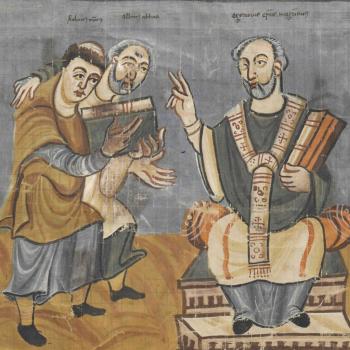Earlier this year, President Trump complained about the media’s failure to pay due attention to Islamist terrorist attacks, and the administration offered a specific list of such events. In some cases, his complaint was unfair, but the list did include many overseas attacks known only to experts, and largely ignored by media. In turn, critics protested about the biases of the Trump list, which ignored most crimes against non-Western victims – incidents in Pakistan, for instance, where Islamists killed dozens or hundreds of civilians, in crimes all but ignored in the West.
Yes, racial and religious biases are at work here, but so are other factors. This whole affair raised disturbing questions not just about the media, but about how far we can ever really comprehend the suffering arising from political violence. With the best of intentions, what can we understand and identify with? There is violence we can comprehend, and that we can’t.
Let me illustrate that with a personal story. I grew up reading about the Holocaust, with its six million or so Jewish victims, and I never doubted that that was a horrible crime, a historic atrocity, and a dreadful stain on Western civilization. But I viewed it as a historical event, much like (say) the mass slaughters undertaken by Genghis Khan. And then one day, in my teens, things changed. I was watching a television documentary about some Greek city. When the Germans had occupied it, they rounded up the city’s whole Jewish population, of some 1,500. These people were then transported to Auschwitz, where they all perished within hours of arrival. This story left me stunned. 1,500 people killed in a single day? But think of all the families, all the innocent people – such a vast number. That’s a whole community. How could anyone do such a thing? This was absolutely shocking, sickening.
And then you think of the story of that one city being retold and re-enacted hundreds and thousands of times.
My point is about the numerical scale of what we can plausibly imagine. I can talk about six million people, but the number really means nothing to me beyond “a large multitude.” They can’t have faces. But I can comprehend 1,500 people. I have often seen crowds of that size, and been in their midst.
A horrible speculation: suppose that the 9/11 attacks had been infinitely worse than they were, and that the whole city of New York had been destroyed, with millions dead. I honestly wonder if that would actually have been more comprehensibly shocking than what actually occurred, with the three thousand victims. Again, I can understand the concept of three thousand people, but not of millions. I can give them faces.
Museums are well aware of this psychological limitation, and they try to counteract it as best they can. Holocaust commemorations, for instance, try to focus on individuals, to give the observer some sense of context and identification. In the film Schindler’s List, we focus on the one little girl in her coat. To take another example, such an individual approach was the contribution of the classic television series Roots, for all its flaws. It told the story of the millions of Africans transported into slavery, and told it as through the life of one identifiable man, and that was what made it such a splendid success.
Beyond the question of numbers, we also face the well-known but still sensitive matter of “people like us.” Ideally, inflicting evil on members of one group, race, or nation should carry precisely the same weight as attacking any other. In practice, though, most of us find it vastly easier to empathize with people who are like us in major aspects, so that, tragically, some lives matter vastly more than others. That point shapes our historical visions of the twentieth century.
We can argue about the uniqueness of the Nazi genocide, but in terms of the actual number of victims murdered, Hitler stood a poor second to Mao Zedong. (Stalin was on a roughly equal plane). But while Hitler’s memory is utterly condemned, Mao’s heritage is openly claimed as the foundation of the one of the world’s greatest superpowers. Nor does that identification cause any significant scandal to most Western observers, or to Western governments who deal with China. Mao is just their history, nothing for foreigners to worry about.
The Rwandan genocide of 1994 claimed some 800,000 victims, but for Americans or Europeans, it carries little weight in popular historical consciousness. In large part, that was because the Western audiences who so dominate media consumption had so few points of potential identification with the victims. These were not just African, but (mainly) peasants and poor people, residents of an obscure Third World country. This was the sort of society where – according to popular Western stereotype – this sort of thing just tends to happen. At every point, they were not people like us. In that instance, I wonder if a particular focus on one single group or village could have the effect of bringing home the scale of the atrocity, as in the Greek example I mentioned earlier. I suspect not, but perhaps I am underestimating the power of empathy.
Genocide is a long way removed from the kind of terrorist attacks currently under debate, but most of the same issues and problems are at work. In conventional thought, some lives really do matter vastly more than others. And I honestly don’t know whether that is a distinctive flaw of Western culture, or something deeply inlaid in our psychological makeup as human beings. I suspect the latter.
















